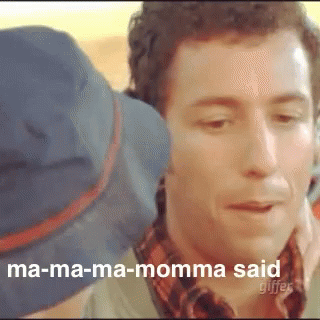“Should” is a Toxic Word
by Erik Castiglione
“Should” – past tense of “shall”, auxiliary verb: used in auxiliary function to express obligation, propriety, or expediency. This is one of the definitions of the word, and the one that we care about right now. “Should” is an interesting word. When used to express “propriety,” we run into a gray area. What is proper? Who determines it? This varies largely from person to person, so when used in this sense, the word “should” has an inherent judgement contained within it. When you ask someone for advice, they determine what is proper, and that’s fine because you asked for their judgement. From a coaching standpoint, if someone were to ask me “I want to lose weight, what should I do?” I would be perfectly justified in using the verb to prescribe the steps my client should take.
It is when we enter the world of unsolicited advice that “should” can become dangerous. When we use it, we judge others by our own moral standards, which may not be the same as theirs. My mother is frequently telling me that I should remove the word “should” from my vocabulary. Admittedly, I am a judgmental asshole, and rather than learn from her I just point out the irony of her statement 😊
“Should” can also be dangerous when we turn it inward and self-judge. Have you ever tried to lose weight, stepped on the scale, seen little progress, and thought “I should be losing weight more quickly than this?” Or, after having lifted for a while, tested a lift, missed it, and thought “I should be stronger by now?” In both cases, we are judging ourselves as failures. Negative self-talk leads to quitting, and it’s not a good practice. Unfortunately, it’s a difficult habit to break.
So, what should you do if you find yourself being negative? Step one: take a deep breath and calm down. Step two: assess the situation and try to determine WHY you aren’t where you expected to be. What derailed your progress? Or, are your expectations unrealistic? Step three: determine what to do next.
I’d like to share an example from personal experience. Last week I had a max effort day where I maxed out a sumo deadlift from a racked started starting position (sumo rack pull). Now, theoretically, you’re either weakest off the floor when you deadlift, or when you extend to lockout. The rack pull focuses on the lockout portion of the lift, and historically I am weaker off the floor. So, I went into the lift thinking that I should be able to lift a heavier weight than my max deadlift. I wound up hitting 10 pounds less, and immediately thought that I should be stronger than that. So, step one, I calmed myself down. Step two, I looked at the situation. I hadn’t trained sumo in quite some time, so I was out of practice engaging my hips. I’ve also since discovered that I haven’t been engaging my glutes in ANY of my lifts recently, so that was also a factor. Am I strong enough to make that failed lift if I reattempt it? Probably. But I need to fix my technical issues first and engage the correct muscles in the correct order. This means PRACTICE. It will take time, but at least I have a plan and my disappointment has passed.
It will take time and practice to break yourself of the self-judgement habit. That’s okay! As long as you are aware of your thoughts and feelings, instead of just wallowing in them, you’ll be able to get there. This is a great skill to practice in the gym because we can apply it to the rest of our lives as well. Or rather, you can. I’ll just go back to being a judgmental asshole. See you in the gym!


